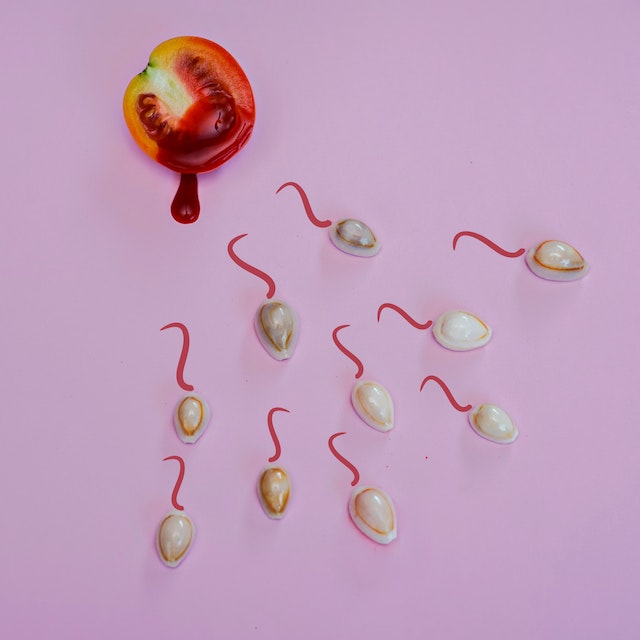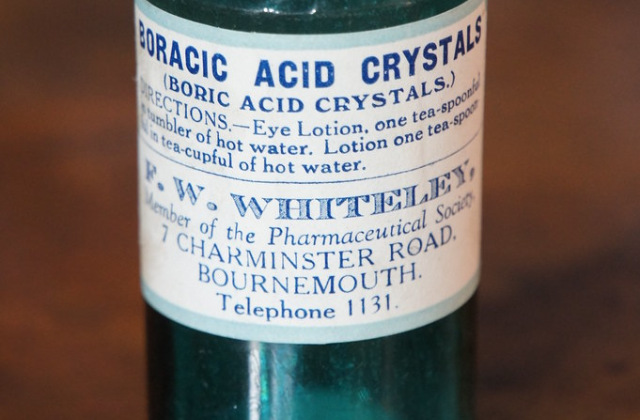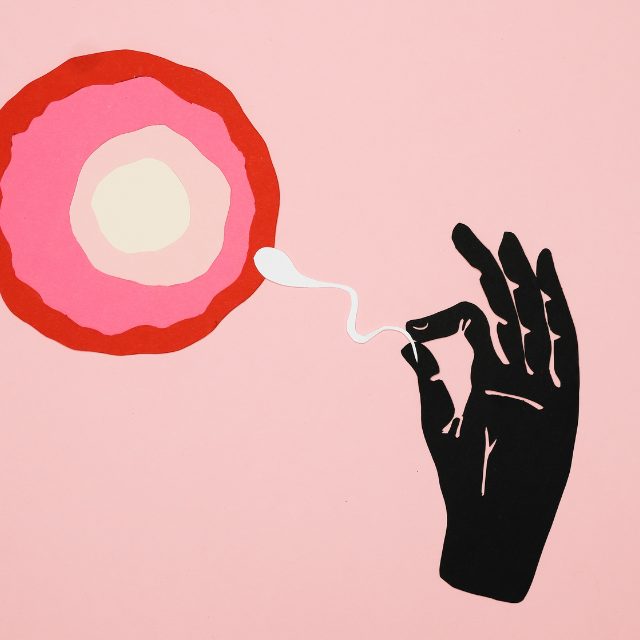
If you’re wondering, “Does boric acid kill sperm?” you’ve come to the right place. It’s important to understand that semen contains a high alkaline content to counteract the acidity of the vagina, allowing sperm to function optimally. This suggests that semen would likely neutralize the boric acid, preventing any adverse effects on sperm integrity.
Therefore, the answer is NO! Vaginal boric acid is not effective as a contraceptive and should not be relied upon to prevent pregnancy. Research has shown that the most effective method of sperm prevention is the use of spermicides, which work by slowing down sperm to prevent fertilization.
It’s worth noting that vaginal boric acid is not approved for use in individuals under the age of 12. For more detailed information about vaginal boric acid, it is recommended to consult with your doctor or pharmacist.
In this article, you will find comprehensive information about boric acid, its properties, uses, and its impact on sperm, providing you with a better understanding of this topic.
What Is Boric Acid

Boric acid is a naturally occurring white compound that dissolves in water. It is composed of oxygen, boron, and hydrogen. This acid is known for its antifungal and antimicrobial properties, making it useful for certain medical applications.
However, it is essential to note that boric acid is a hazardous substance and can be toxic if misused. Acute poisoning typically occurs when individuals ingest powdered roach-killing products containing boric acid. The caustic nature of boric acid can cause harm if it comes into contact with tissues.
In the medical field, boric acid finds application as an antiseptic, often used to treat minor cuts, burns, and acne. It may also be prescribed by healthcare providers to help maintain the normal pH of the vagina. Consequently, boric acid is sometimes utilized in the treatment of specific medical conditions.
While boric acid has its uses in medical contexts, it is crucial to exercise caution and follow professional guidance to ensure safe and appropriate application.
Does Boric Acid Kill Sperm?
Vaginal boric acid is a homeopathic prescription medicine that combines probiotics or “friendly bacteria” (Lactobacillales), as well as antioxidants like Vitamin C and E. This product is designed to restore the normal acidity of the vagina and balance the vaginal flora, which includes beneficial bacteria.
The primary use of vaginal boric acid is for the treatment of vaginal yeast infections and the alleviation of associated symptoms such as burning, itching, and odor.
On the other hand, sperm cells are the male reproductive cells that originate in the testicles. They possess the ability to swim and fertilize a female reproductive cell called an oocyte.
It’s important to note that while vaginal boric acid is used to address vaginal yeast infections, it does not affect or neutralize sperm cells. The two are distinct and unrelated entities in terms of their function and interaction within the reproductive system.
What Are The Main Uses Of Vagina Boric Acid?

Boric acid helps to promote the proper acid balance in the vagina. Its uses are listed below.
1. Yeast Infection
Vaginal yeast infections are associated with the candida genus of yeast, which is normally present in the vagina, in lower numbers. But if the balance of normal vaginal bacteria and yeast changes, symptoms of candidiasis can arise. While it’s not an STI, rates of infection tend to increase in people with multiple sexual partners. Typical treatment is an oral or topical antifungal medication.
Vaginal yeast infections are also known as candida vulvovaginitis or candidiasis. They result from the increased growth of yeast in the vagina, which causes irritation, swelling, and itching in the area.
Other symptoms include pain and burning when urinating, thick but odorless vaginal discharge that looks like cottage cheese, and pain during sex. Boric acid suppositories are sometimes prescribed as an alternative treatment for vaginal yeast infections that keep occurring despite treatment.
2. Bacterial Vaginosis (BV)
An infection of the vagina called bacterial vaginosis is brought on by an overabundance of bacteria, including Gardnerella, Bacteroides, and Fusobacterium. An imbalance between the beneficial vaginal flora (like lactobacillus) and the harmful ones results in bacterial vaginosis.
A white or gray vaginal discharge with a pronounced fishy odor is frequently a symptom of BV. While the majority of people do not feel any pain, symptoms like vaginal soreness or pain when peeing occasionally may occur.
Although BV is not a sexually transmitted infection (STI), risk factors for infection include having multiple sexual partners.
Healthcare providers will typically prescribe an antibiotic to treat BV, but some healthcare providers might recommend alternative treatments, including probiotic supplements. The effectiveness of these alternative methods is still being debated among healthcare providers.
However, some people use boric acid capsules as an alternative treatment for bacterial vaginosis, although data on their effectiveness is limited. If you suspect you have BV, contact a healthcare provider for advice and treatment.
3. Trichomoniasis
Trichomoniasis is an STI caused by the parasite trichomonas vaginalis. Typical symptoms include genital itching, a green or yellow, foul-smelling vaginal discharge, and pain when urinating and during sex. A trichomonas infection is usually treated with antibiotics, but drug resistance is an increasing problem.
In some cases, boric acid suppositories might be prescribed as an alternative treatment, although their effectiveness and safety have not been fully studied.
When Not To Use Vagina Boric Acid
You should not use vagina boric acid if you are allergic to it or if you have:
- A weak immune system (caused by disease or by using certain medicines)
- High blood pressure
- Pain or tenderness in your pelvis or lower stomach
- Pelvic inflammatory disease
- Blood vessel disorder
- Vaginal bleeding
- Heart disease
- fever, chills, nausea
- An active sexually transmitted disease
Besides, if you are pregnant, it is not known whether this medicine will harm an unborn baby. Although it is advisable you tell your doctor if you are pregnant or plan to become pregnant.
Also, It is not known whether vaginal boric acid passes into breast milk or if It could harm a nursing baby. But you should not breastfeed while using this medicine.
Side Effect Of Using Boric Acid

Some common side effects of boric acid use include:
- Vaginal discomfort.
- There is a burning sensation in the vagina after inserting the capsule.
- Redness in the vagina.
- Urticaria or hives
- Watery discharge from the vagina
Boric acid is a caustic chemical. If it comes in contact with tissues, it can cause injury. Chronic poisoning occurs in those who are repeatedly exposed to boric acid.
For example, in the past, boric acid was used to disinfect and treat wounds. People who repeatedly received such treatment got sick, and some died. Discontinue using the suppository if you feel discomfort, and even after that, if you have persistent symptoms, call your healthcare professional.
Use Spermicide Instead
Boric acid can be considered as an alternative to antifungals for the treatment of vaginal infection and discharge. However, it is important to note that boric acid does not provide protection against sexually transmitted infections (STIs) or prevent unwanted pregnancy. For contraception and the prevention of pregnancy, spermicide is a recommended option.
Spermicide is a form of birth control that contains chemicals designed to inhibit sperm from reaching and fertilizing an egg. It is inserted into the vagina before sexual intercourse to act as a barrier and block the entrance to the cervix, preventing the sperm from reaching the egg. The active ingredient in spermicide is nonoxynol-9, which functions by killing sperm.
It is commonly used in conjunction with other barrier methods such as a diaphragm, condom, or cervical cap. It’s important to note that spermicide alone does not protect STIs. Some women may experience discomfort or irritation as potential side effects of using spermicide, including vaginal inflammation.
When used correctly, spermicide is approximately 72% effective at preventing pregnancy. To enhance its effectiveness, it is recommended to combine spermicide with other forms of birth control for better contraceptive coverage.
Spermicide has various types, which include:
1. Spermicidal Creams And Gels
Creams and gels are used in the same way as spermicidal jelly. Like jelly, they also provide lubrication. Contraceptive creams and gels come in different textures. They tend to be less likely to drip or leak than other forms of spermicide.
To use, twist the applicator onto the end of the tube. Fill the container with the cream or gel. Twist off the applicator and insert it into the vagina close to the cervix. Press the plunger to release it.
Gels and creams work best when used right before sex. Most of them should not be inserted more than 15 minutes before sex. This gel steadily releases nonoxynol-9. One dose provides 24-hour protection.
2. Spermicidal Foam
Contraceptive foam comes in an aerosol can with an applicator. The product looks similar to mousse hair styling products. To use it, shake the can for at least 30 seconds. Press the tip of the applicator on the nozzle and press down. This fills the applicator with foam.
Lie down and insert the applicator a few inches into the vagina. Push the plunger to release the foam. The foam is active immediately. This means you should insert it not more than 60 minutes before having sex. Wash the applicator with soap and water. Store it in a clean, dry place so it can be used again.
3. Contraceptive Tablets

These are solid forms of concentrated spermicide that melt into foam. Inserts or suppositories are about 1/2 inch long and less than 1/4 inch wide. The suppository needs to be inserted into the vagina as close to the cervix as possible. Wait 10 to 15 minutes to allow it to dissolve into a foamy substance.
A new insert should be used each time you have sex. Foaming contraceptive tablets work in the same way as inserts. Some people report a warm sensation in the vagina as these spermicidal tablets melt into foam.
4. Contraceptive Sponge
The contraceptive sponge is a soft, round device with a diameter of about 2 inches. It is made of solid polyurethane foam and contains spermicide. The contraceptive sponge has a nylon loop attached to the bottom for removal.
Moisten the sponge with water and insert it into the vagina before sex. The sponge works to prevent pregnancy by blocking the cervix and killing sperm.
5. Contraceptive Film
It looks similar to wax paper. Make sure your hands are dry before inserting the needle. To insert it, fold it in half, then in half again. Place it on the tip of your index finger. Push it into the vagina on or near the cervix. The spermicidal film will absorb vaginal secretions and melt into a thick gel.
In this way, it acts as a barrier to stop sperm. At least 15 minutes before sex, VCF must be inserted. This gives it time to dissolve completely, so it will be effective. A new piece of VCF should be used each time you have sex. A single application is good for up to one hour.
6. Spermicidal Jelly
Contraceptive jelly is another form of concentrated spermicide. Jellies come in tubes. They are usually used with a diaphragm or cervical cap. To use, squeeze the spermicidal jelly into the applicator and Insert it into your vagina.
Insert a second dose if sex lasts longer than an hour or if you have sex again. When used with a diaphragm, protection lasts up to six hours. Unlike spermicidal foams, films, and inserts, jelly can also provide lubrication.
Note
Different types of spermicides have different instructions for usage. Some last longer than others or need to be inserted at different times before sex. Be sure to read the instructions before using it.
Uses Of Boric Acid
- Boric acid is often a part of homeopathic medicines used for treating vaginal discharge and itching. This medication is a combination of friendly bacteria, vitamin E, and small amounts of boric acid.
- It is usually used in dilute solutions as a treatment for diaper rash, insect bites and stings, and sunburns.
- Boric acid is an effective pesticide for cockroaches, rats, and flies.
- It is also helpful in treating various types of ear infections in both humans and pets (otitis externa, also called swimmer’s ear, is an infection of the outer ear canal). The use of boric acid in children is not recommended.
- It is also helpful in treating foul foot odor. A person suffering from excessively smelly feet can apply boric acid powder mixed with talc to the inner side of footwear.
- Boric acid helps to get rid of tough stains on clothes by adding them to regular detergent while doing laundry.
- They are used to remove dirt and odor from kitchens and bathrooms.
Bottom Line
It is important to abstain from sexual activity while undergoing treatment for a vaginal infection. While boric acid suppositories can be effective in treating such infections, they do not prevent the transmission of the infection to your partner. Furthermore, it is crucial to note that boric acid does not provide any protection against sexually transmitted diseases (STDs) nor offer contraceptive benefits.
When using boric acid, it is advised to refrain from engaging in sexual intercourse. This is because boric acid may damage condoms and interfere with the proper functioning of diaphragms. Additionally, it can diminish the effectiveness of vaginal spermicides, potentially increasing the risk of unintended pregnancy. To ensure effective contraception and reduce the risk of conception, it is important to follow appropriate contraceptive practices and seek guidance from a healthcare professional.
Leave a Reply
You must be logged in to post a comment.